Participants in the Organic Spotted Wing Dropsophila Research Project
 Philip Fanning (PD): Philip Fanning is an assistant professor of agricultural entomology at the University of Maine. Research in his lab is focused on the ecology and behavior of insects in agro-ecosystems. They study insects that are pests, and natural enemies within these agricultural systems and in the surrounding landscapes. The evaluation and optimization of pest management programs, and development of sustainable alternative management tactics towards the goal of conservation of biological control and pollinators is a key focus of their research.
Philip Fanning (PD): Philip Fanning is an assistant professor of agricultural entomology at the University of Maine. Research in his lab is focused on the ecology and behavior of insects in agro-ecosystems. They study insects that are pests, and natural enemies within these agricultural systems and in the surrounding landscapes. The evaluation and optimization of pest management programs, and development of sustainable alternative management tactics towards the goal of conservation of biological control and pollinators is a key focus of their research.
 Mary Rogers: Mary Rogers is an Associate Professor of Sustainable & Organic Horticultural Food Production Systems in the Department of Horticultural Science at the University of Minnesota. (40% teaching, 40% research, 20% extension) specializing in sustainable and organic horticulture food production systems. Her research program investigates plant‐insect interactions and biological and environmental strategies to improve the production of specialty crops in the upper Midwest. To learn more about the Rogers Organic Horticulture lab, visit: https://rogerslab.cfans.umn.edu/ or follow us on Instagram: Rogerslab_umn
Mary Rogers: Mary Rogers is an Associate Professor of Sustainable & Organic Horticultural Food Production Systems in the Department of Horticultural Science at the University of Minnesota. (40% teaching, 40% research, 20% extension) specializing in sustainable and organic horticulture food production systems. Her research program investigates plant‐insect interactions and biological and environmental strategies to improve the production of specialty crops in the upper Midwest. To learn more about the Rogers Organic Horticulture lab, visit: https://rogerslab.cfans.umn.edu/ or follow us on Instagram: Rogerslab_umn

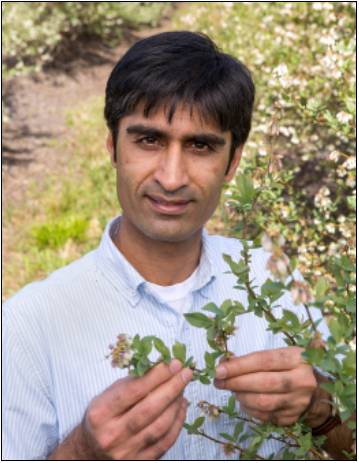
Ashfaq Sial Ahmad: Dr. Ashfaq Sial is currently working as an Assistant Professor in the Entomology Department at the University of Georgia where he has a research and extension appointment. The goals of his research program are to investigate biology and ecology of economically important arthropod pests of small fruits in both field and laboratory settings and to develop sustainable integrated pest management (IPM) programs. He is particularly interested in insecticide toxicology and resistance evolution. His laboratory employs biochemical, molecular, and quantitative genetic approaches to assess the risk of resistance evolution and determine resistance mechanisms in order to develop scientifically based resistance management programs. His program also evaluates insect monitoring techniques, biological control, and host plant resistance, and integrates multiple management tactics to provide a systems-level approach to pest management. The majority of his current projects focus on investigating various aspects of biology and management of invasive pest, spotted wing drosophila. He works directly with growers to help them implement IPM programs in conventional as well as organic production systems.
Since his arrival to UGA, Dr. Sial has led several research and extension initiatives including a statewide survey of SWD and UGA Blueberry Blog to help growers implement short-, medium-, and long-term strategies to effectively control SWD. He has written over 25 extension articles and delivered over 40 presentations throughout the state and nationally in the past 24 months. He is currently working on developing an App to help farmers identify major insect pests of blueberries and manage them effectively. His laboratory is well-funded through federal, stakeholder, and industry grants. Thus far, Dr. Sial has received a total of $10.4 million in extramural funding as PD or Co-PD to support his program. Currently, he is serving as Project Director (PD) of a multi-state collaborative grant funded by USDA National Institute of Food and Agriculture through Organic Research and Extension Initiative – OREI (Award No. 2015-51300-24154). The long-term goal of this grant is to develop, evaluate and implement systems-based organic SWD management programs that are compatible with the USDA National Organic Program (NOP) and true to the ethos of organic agriculture. These programs will be based on a foundation of cultural, physical, and behavioral control tactics, bolstered by NOP compliant insecticides. Dr. Sial is also involved in a recently funded Specialty Crop Research Initiative – SCRI grant (Award number 2015-51181-24252) as Co-Project Director (Co-PD).
Current members of his laboratory include three graduate students (Danielle Rosensteel, Josh Grant, and Richard Evans), a postdoctoral scientist (Dr. Bal Gautam), a research professional/lab manager (Brian Little), and six undergraduate research assistants. Lab members are working on various aspects of biology and ecology of SWD with the ultimate goal of developing sustainable management programs to control this pest in a more sustainable manner. Dr. Sial is currently recruiting more postdoctoral research associates and graduate students. The potential candidates may contact him at ashsial@uga.edu.
Jana Lee: Jana Lee is a Research Entomologist at the USDA ARS Horticultural Crops Research Unit. Her lab develops biological control and other sustainable management tools for pests of small fruits and ornamentals. In this grant, Jana will examine how the physiological status of SWD affects their response to volatiles and the pupation habits of SWD, to improve trapping systems and management targeting additional life stages of the pest.
 Vaughn Walton: Vaughn Walton works on economically important pests, with the aim to provide environmentally sustainable and minimal impact pest management strategies for agriculturalists in Oregon and further afield. Multiple techniques are used in a whole-system approach to obtain sustainable means of production.
Vaughn Walton: Vaughn Walton works on economically important pests, with the aim to provide environmentally sustainable and minimal impact pest management strategies for agriculturalists in Oregon and further afield. Multiple techniques are used in a whole-system approach to obtain sustainable means of production.
In order to obtain this goal, new knowledge obtained from detailed insect physiological, biological, behavioral, ecological and environmental studies are needed. This knowledge is then used to apply treatments timed to occur during periods when pests are at their most vulnerable. These control strategies have historically focused on biological control, mating disruption and conventional synthetic pesticides.
The long-term goal of my work in this project is to develop and deliver sustainable management programs for SWD that are not only NOP standards-compliant but also are true to the ethos of organic agriculture. In this project, we will develop pest management programs based on a foundation of cultural, physical, and behavioral control tactics bolstered by biopesticides. The programs developed in our project will be based on scientific understanding of biology and ecology of SWD. It will allow producers to follow the organic hierarchy of pest management, conserve natural enemies, and reserve their use of lethally active, broad-spectrum insecticides for emergency applications.
Specific objectives and scope of work to be conducted at Oregon State University include:
- Develop semiochemical based management tactics for SWD.
- Develop cultural control tactics and evaluate their efficacy and feasibility for reduction of SWD damage.
- Develop effective chemical control strategies that do not disrupt biological suppression of pest complexes.
- Development and implementation of an integrated outreach program.
 Oscar Liburd: Dr. Liburd is a Professor in the Entomology and Nematology Department at the University of Florida (UF). He has over 15 years of professional experience in academia and is the Program Leader for the Small Fruit and Vegetable IPM laboratory at UF. Dr. Liburd has published more than 150 scientific papers and has received numerous awards for his scholarship including the recent Distinguished Achievement Award for Horticultural Entomology (2013) from ESA southeastern branch, Excellence in IPM awarded from the Entomological Society of America (2008), and Entomologist of the year (2008) from the Florida Entomologist.
Oscar Liburd: Dr. Liburd is a Professor in the Entomology and Nematology Department at the University of Florida (UF). He has over 15 years of professional experience in academia and is the Program Leader for the Small Fruit and Vegetable IPM laboratory at UF. Dr. Liburd has published more than 150 scientific papers and has received numerous awards for his scholarship including the recent Distinguished Achievement Award for Horticultural Entomology (2013) from ESA southeastern branch, Excellence in IPM awarded from the Entomological Society of America (2008), and Entomologist of the year (2008) from the Florida Entomologist.
Dr. Liburd has over 20 years of experience in the development of attractants and lures for management of fruit flies. He has worked extensively in organic agriculture on the behavioral management of horticultural pests using cultural techniques such as mulches, cover crops, trap crops, and intercropping. He has many years of experience evaluating biopesticides and their effects on non-target organisms and has worked extensively with small fruit and vegetable growers in the Eastern United States.
Dr. Liburd and his research group will be participating in the evaluation and development of semiochemicals for monitoring and attract-and-kill systems for SWD. They will be involved with the development of cultural control tactics, specifically the impact of mulches, microclimate, and cultivation techniques for SWD management. They will participate in the development of chemical control strategies using OMRI listed products for SWD suppression and management. Part of this project will involve the effects of these pesticides on non-target species. Finally, the group will participate in the overall extension activities outlined in the project.
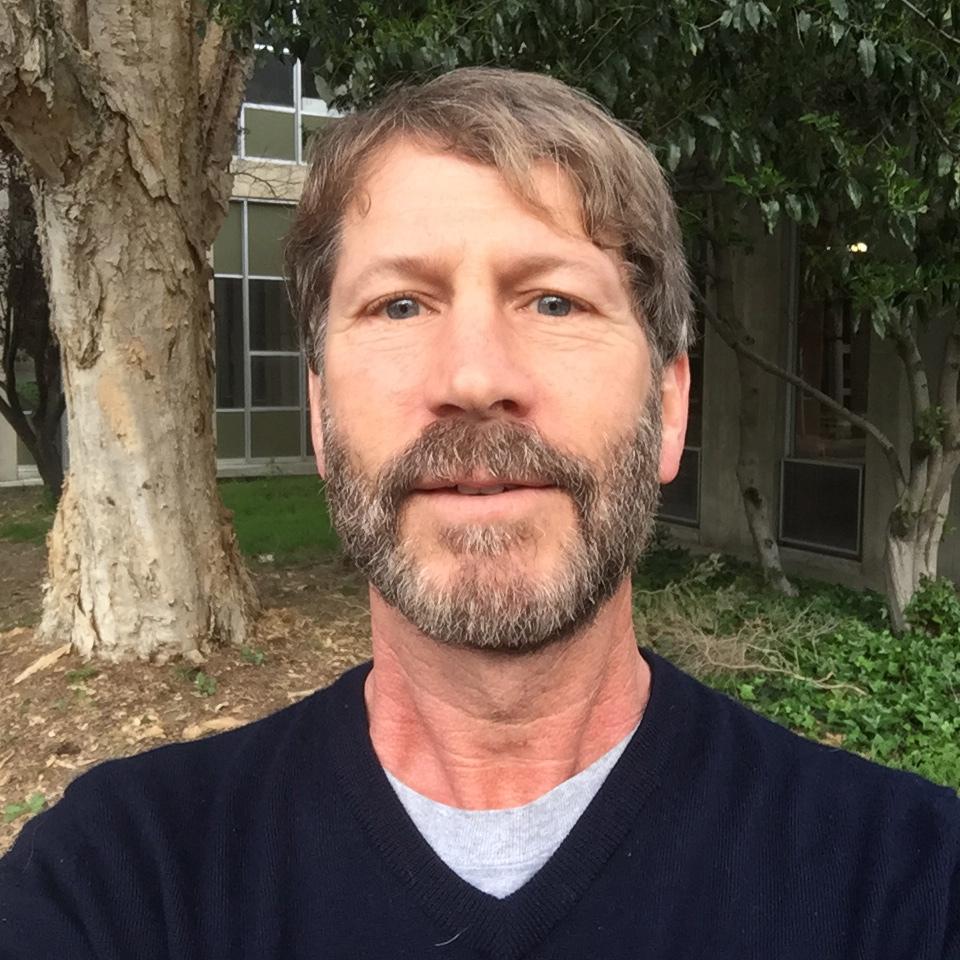 Kent Daane: Dr. Daane is a Professor of Cooperative Extension at the University of California Berkeley. His research focuses on the development of ecologically-based insect pest management systems. Research studies include classical biological control, augmentation programs, insect-plant interactions, use of least-disruptive insecticides and the biology of natural enemies.
Kent Daane: Dr. Daane is a Professor of Cooperative Extension at the University of California Berkeley. His research focuses on the development of ecologically-based insect pest management systems. Research studies include classical biological control, augmentation programs, insect-plant interactions, use of least-disruptive insecticides and the biology of natural enemies.
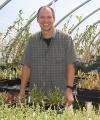 Cesar Rodriguez-Saona: Dr. Cesar Rodriguez-Saona is a Professor and Extension Specialist in the Department of Entomology at Rutgers University. The goal of his research and extension programs is the development and implementation of cost-effective and reduced-risk integrated pest management practices for blueberries and cranberries. His areas of research include biological control, applied chemical ecology, insect-plant interactions, tritrophic interactions, and host-plant resistance. As of September 2013, he has authored 150 peer-reviewed publications and has trained 14 graduate students and 13 postdoctoral associates. As part of this OREI grant, Dr. Rodriguez-Saona’s lab will determine the impact of sustainable spotted-wing drosophila (SWD) management on natural enemies and develop an integrated outreach and training program to implement organic SWD management strategies in New Jersey.
Cesar Rodriguez-Saona: Dr. Cesar Rodriguez-Saona is a Professor and Extension Specialist in the Department of Entomology at Rutgers University. The goal of his research and extension programs is the development and implementation of cost-effective and reduced-risk integrated pest management practices for blueberries and cranberries. His areas of research include biological control, applied chemical ecology, insect-plant interactions, tritrophic interactions, and host-plant resistance. As of September 2013, he has authored 150 peer-reviewed publications and has trained 14 graduate students and 13 postdoctoral associates. As part of this OREI grant, Dr. Rodriguez-Saona’s lab will determine the impact of sustainable spotted-wing drosophila (SWD) management on natural enemies and develop an integrated outreach and training program to implement organic SWD management strategies in New Jersey.
 Frank G. Zalom: Dr. Zalom is Distinguished Professor of Entomology and Extension Entomologist at UC Davis. He served as Director of the UC Statewide IPM Program for 16 years, and has conducted research on tree fruit, small fruit and vegetable crops pests for 37 years. Elected a Fellow of the California Academy of Sciences, the American Association for the Advancement of Science (AAAS), and the Entomological Society of America (ESA), he has received both ESA’s Achievement Award in Extension and its Recognition Award, the Entomological Foundation’s IPM Team Award and its Excellence in IPM Award, the James H. Meyer Award from UC Davis for teaching, research and service, a Fulbright Senior Research Fellowship, and the CW Woodworth Award from ESA’s Pacific Branch. He served as ESA Pacific Branch President (2001), ESA National President (2014), and Entomological Foundation President (2015). He has authored over 330 peer-reviewed publications, and was major Professor for 12 PhD and 6 MS students. Dr. Zalom’s lab was the first to study Drosophila suzukii as an agricultural pest in North America, and as part of this OREI grant he will pursue objectives related to effectiveness of organic insecticides and canopy management for SWD control, and incorporation of project results into University of California management guidelines.
Frank G. Zalom: Dr. Zalom is Distinguished Professor of Entomology and Extension Entomologist at UC Davis. He served as Director of the UC Statewide IPM Program for 16 years, and has conducted research on tree fruit, small fruit and vegetable crops pests for 37 years. Elected a Fellow of the California Academy of Sciences, the American Association for the Advancement of Science (AAAS), and the Entomological Society of America (ESA), he has received both ESA’s Achievement Award in Extension and its Recognition Award, the Entomological Foundation’s IPM Team Award and its Excellence in IPM Award, the James H. Meyer Award from UC Davis for teaching, research and service, a Fulbright Senior Research Fellowship, and the CW Woodworth Award from ESA’s Pacific Branch. He served as ESA Pacific Branch President (2001), ESA National President (2014), and Entomological Foundation President (2015). He has authored over 330 peer-reviewed publications, and was major Professor for 12 PhD and 6 MS students. Dr. Zalom’s lab was the first to study Drosophila suzukii as an agricultural pest in North America, and as part of this OREI grant he will pursue objectives related to effectiveness of organic insecticides and canopy management for SWD control, and incorporation of project results into University of California management guidelines.
Joanna Chiu: Joanna Chiu obtained her B.A. in Biology and Music at Mount Holyoke College, MA, USA, and her Ph.D. in Molecular Genetics at New York University, USA. As a postdoctoral fellow at the Center for Advanced Biotechnology and Medicine, Rutgers University, USA, she investigated the molecular mechanisms regulating insect circadian rhythms. She started her laboratory at UC Davis in 2010. Her research group uses a combination of molecular genetics, biochemical, and omics approaches to dissect the molecular and cellular mechanisms that control insect circadian and seasonal rhythms. Her laboratory also leverages genomic approaches to study invasive insects with the goal of developing new strategies for controlling agricultural pests, thus contributing to long-term global food security. Dr. Chiu received the NIH Pathway to Independence Award in 2008, the UC Davis Chancellor’s Fellowship in 2018, and the Entomological Society of America Physiology, Biochemistry, and Toxicology Research Award in 2019. In addition to her research program, Dr. Chiu is dedicated to the training of the next generation of scientists and promoting diversity in science and society. She was awarded the 2022 UC Davis Academic Senate Distinguished Teaching and Mentoring Award for her contributions to graduate and professional mentoring and the 2023 UC Davis Chancellor’s Award for Excellence in Mentoring Undergraduate Research. She currently serves as the Chair of the Department of Entomology and Nematology and Director of the NIH-funded Postbaccalaureate Research Education Program at UC Davis.
 Elizabeth Beers: Dr. Elizabeth Beers is a tree fruit entomologist with Washington State University located in the heart of the state’s fruit growing region, the Tree Fruit Research and Extension Center in Wenatchee. She has a research and extension responsibility for the state’s orchard crops, which include apple, pear, cherry, and stone fruits. Over the course of her 35+ year career, she has worked in many tree fruit IPM systems, both conventional and organic, primarily in the area of conservation biological control (CBC). Systems studied include indirect pests (mites, leafhoppers, leafminers, aphids, mealybugs, weevils), direct pests (campylomma, thrips, pear psylla, codling moth), and their natural enemies (predatory mites, predatory insects, parasitic Hymenoptera). Her approach has focused on determining insecticide efficacy, integrating chemical and biological control, and exploring habitat modification to achieve a higher level of CBC in orchards. Since 2010, her lab has shifted focus to invasive species, including brown marmorated stink bug and spotted wing drosophila. The latter studies have helped build the story of the distribution, biology and ecology of these species in Washington’s semi-arid climate while in the process of invasion. Highlights include discovery and re-distribution of adventive populations of exotic parasitoids (Trissolcus japonicus and Ganaspis brasiliensis) targeted for classical (importation) biocontrol of the two invasive species. Regardless of the pest or crop, her focus has been grower-centric: solving grower pest problems, communicating the results of her own and colleagues’ research, and facilitating the adoption of IPM practices.
Elizabeth Beers: Dr. Elizabeth Beers is a tree fruit entomologist with Washington State University located in the heart of the state’s fruit growing region, the Tree Fruit Research and Extension Center in Wenatchee. She has a research and extension responsibility for the state’s orchard crops, which include apple, pear, cherry, and stone fruits. Over the course of her 35+ year career, she has worked in many tree fruit IPM systems, both conventional and organic, primarily in the area of conservation biological control (CBC). Systems studied include indirect pests (mites, leafhoppers, leafminers, aphids, mealybugs, weevils), direct pests (campylomma, thrips, pear psylla, codling moth), and their natural enemies (predatory mites, predatory insects, parasitic Hymenoptera). Her approach has focused on determining insecticide efficacy, integrating chemical and biological control, and exploring habitat modification to achieve a higher level of CBC in orchards. Since 2010, her lab has shifted focus to invasive species, including brown marmorated stink bug and spotted wing drosophila. The latter studies have helped build the story of the distribution, biology and ecology of these species in Washington’s semi-arid climate while in the process of invasion. Highlights include discovery and re-distribution of adventive populations of exotic parasitoids (Trissolcus japonicus and Ganaspis brasiliensis) targeted for classical (importation) biocontrol of the two invasive species. Regardless of the pest or crop, her focus has been grower-centric: solving grower pest problems, communicating the results of her own and colleagues’ research, and facilitating the adoption of IPM practices.
Miguel Gomez: Miguel I. Gómez is the Robert G. Tobin Professor in the Dyson School of Applied Economics and Management, Cornell University. He is Director of the Food Industry Management Program, which is globally recognized as the premier food industry education and research program. Miguel concentrates his research program of food marketing and distribution, with emphasis on sustainability of food supply chains from farm to table. Miguel is leading the economic analysis to identify cost-effective, sustainable strategies to control for SWD infestations.
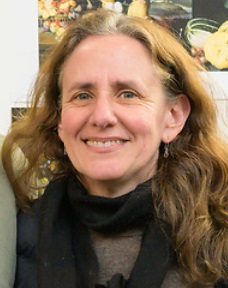 Alice Formiga: Alice Formiga is an Assistant Professor in the Department of Horticulture at Oregon State University and is the director of eOrganic, which is an online community that publishes articles, videos, webinars and online courses about organic farming and research at https://eorganic.info. She will assist the project in conducting webinars and online extension and outreach.
Alice Formiga: Alice Formiga is an Assistant Professor in the Department of Horticulture at Oregon State University and is the director of eOrganic, which is an online community that publishes articles, videos, webinars and online courses about organic farming and research at https://eorganic.info. She will assist the project in conducting webinars and online extension and outreach.
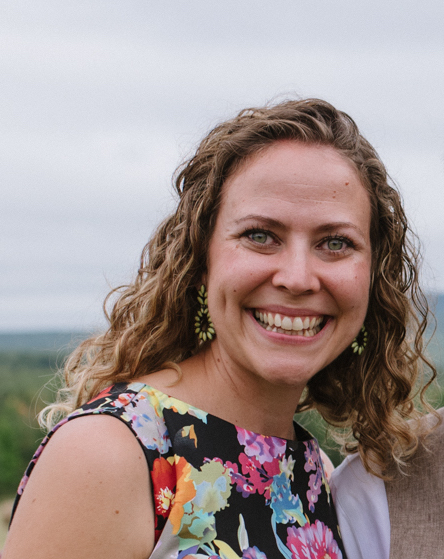 Megan Carter: Megan Carter is a Research Professional in the Fanning lab at the University of Maine. Megan’s research background is in sustainable agricultural pest management, with an emphasis on biological control. Her M.S. thesis studied the effects of insecticide on a biological control agent of the soybean aphid. She joined the Fanning lab in the summer of 2023, focusing her efforts on operational organization and biological control efforts of spotted-wing drosophila.
Megan Carter: Megan Carter is a Research Professional in the Fanning lab at the University of Maine. Megan’s research background is in sustainable agricultural pest management, with an emphasis on biological control. Her M.S. thesis studied the effects of insecticide on a biological control agent of the soybean aphid. She joined the Fanning lab in the summer of 2023, focusing her efforts on operational organization and biological control efforts of spotted-wing drosophila.
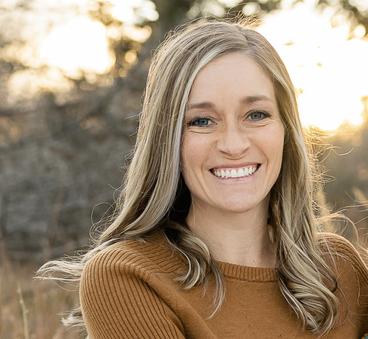 Leah Worth: Leah Worth is a Research Professional at the University of Minnesota. A horticulturist by trade, Leah’s research background is on small fruits, vegetables, and ornamentals, with a heavy emphasis on season extension, raspberry production, and organics. Her M.S. thesis studied the effects of root-zone temperature and photosynthetic radiation on high tunnel red-raspberry production. She joined the Rogers Organic Horticulture team at the University of Minnesota in March 2020, focusing her efforts on exclusion and biological control efforts of spotted-wing drosophila in tunnel raspberries. Leah manages the Rogers Organic Horticulture lab website, distributes the university’s Student Organic Farm monthly newsletter, co-authors research publications, and aids in the coordination of the OREI online summer program.
Leah Worth: Leah Worth is a Research Professional at the University of Minnesota. A horticulturist by trade, Leah’s research background is on small fruits, vegetables, and ornamentals, with a heavy emphasis on season extension, raspberry production, and organics. Her M.S. thesis studied the effects of root-zone temperature and photosynthetic radiation on high tunnel red-raspberry production. She joined the Rogers Organic Horticulture team at the University of Minnesota in March 2020, focusing her efforts on exclusion and biological control efforts of spotted-wing drosophila in tunnel raspberries. Leah manages the Rogers Organic Horticulture lab website, distributes the university’s Student Organic Farm monthly newsletter, co-authors research publications, and aids in the coordination of the OREI online summer program.
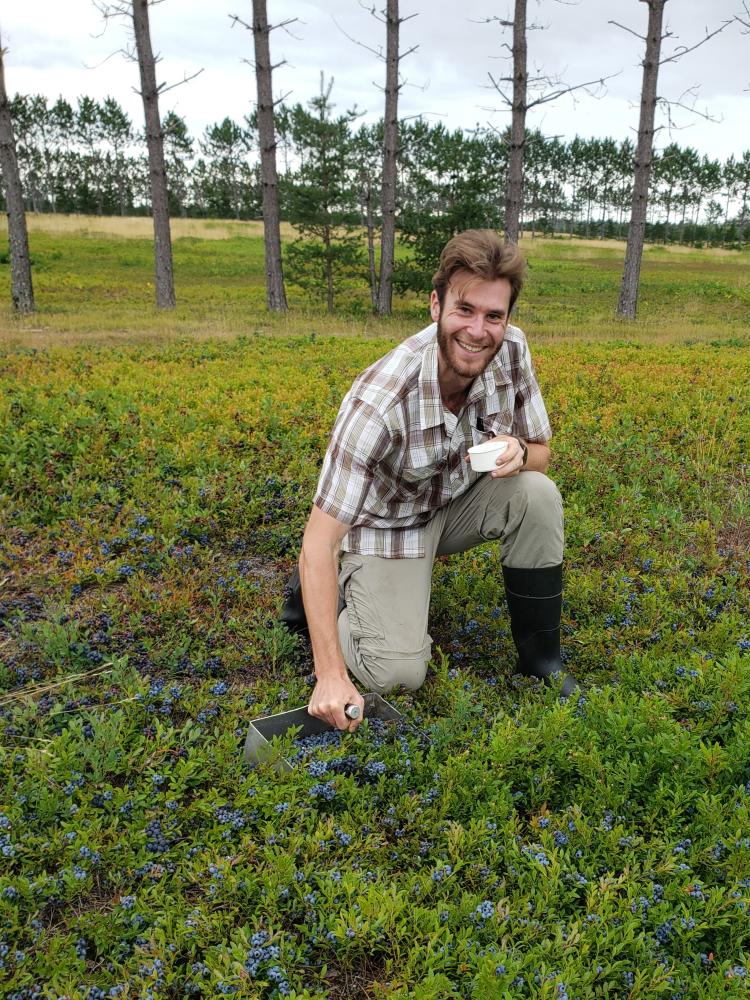 Ben Johnson: I did my undergraduate degree at Hope College, where I studied Biology, Geology, and Political Science. I am now a Ph.D. candidate in the Fanning lab with research focused on the sustainable management of Spotted Wing Drosophila via behavioral and biological control methods in Maine's lowbush blueberry agroecosystems. When not working, I enjoy trail running, biking, backpacking, bikepacking, and petting every dog I encounter on my adventures.
Ben Johnson: I did my undergraduate degree at Hope College, where I studied Biology, Geology, and Political Science. I am now a Ph.D. candidate in the Fanning lab with research focused on the sustainable management of Spotted Wing Drosophila via behavioral and biological control methods in Maine's lowbush blueberry agroecosystems. When not working, I enjoy trail running, biking, backpacking, bikepacking, and petting every dog I encounter on my adventures.
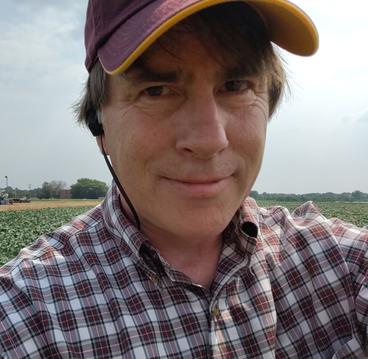 Jonathan Dregni: Jonathan is a Research Professional in the Rogers lab at the University of Minnesota. Jonathan's interest in studying food systems stems from their critical role in human resilience and their significance as a juncture where human needs meet local ecosystems. When not tending to his insect colonies, he cares for his family, including two formerly alley cats and 2 grown children, and he also tends to his garden filled predominantly with native plants, alongside raspberries, rhubarb, and various vegetables. With a bachelor's degree in economic development and the history of modern capitalism, Jonathan earned a master's degree in entomology, focusing on the impact of insecticidal seed treatments on the biological control of soybean aphids. He brings his knowledge of insects to the Rogers lab where he hopes to help provide control of several intractable pests, including spotted-wing drosophila which wreaks havoc on small fruits, and the swede midge, a menace to brassica crops like broccoli. Currently, Jonathan shares his knowledge as a visiting lecturer in environmental science at UW Eau Claire, helps as a neighborhood resource with native plantings for pollinators, and also teaches Pilates in Saint Paul. Beyond his academic and professional pursuits, Jonathan finds joy in experiencing the local music scene with his partner, Karin, considering music to be one of humanity's most remarkable creations.
Jonathan Dregni: Jonathan is a Research Professional in the Rogers lab at the University of Minnesota. Jonathan's interest in studying food systems stems from their critical role in human resilience and their significance as a juncture where human needs meet local ecosystems. When not tending to his insect colonies, he cares for his family, including two formerly alley cats and 2 grown children, and he also tends to his garden filled predominantly with native plants, alongside raspberries, rhubarb, and various vegetables. With a bachelor's degree in economic development and the history of modern capitalism, Jonathan earned a master's degree in entomology, focusing on the impact of insecticidal seed treatments on the biological control of soybean aphids. He brings his knowledge of insects to the Rogers lab where he hopes to help provide control of several intractable pests, including spotted-wing drosophila which wreaks havoc on small fruits, and the swede midge, a menace to brassica crops like broccoli. Currently, Jonathan shares his knowledge as a visiting lecturer in environmental science at UW Eau Claire, helps as a neighborhood resource with native plantings for pollinators, and also teaches Pilates in Saint Paul. Beyond his academic and professional pursuits, Jonathan finds joy in experiencing the local music scene with his partner, Karin, considering music to be one of humanity's most remarkable creations.
Jay Delacy: Jay Delacy is a Master’s student at the University of Minnesota in Dr. Mary Rogers’ lab studying Ganaspis brasiliensis in a few different areas: colony rearing, parasitism rate on different spotted wing drosophila host fruits, and the impact of organic pesticides on the wasps. He has lived in Minnesota for his whole life but has made it his goal to travel to a different national park every year. He spends his free time hiking, skiing, and taking care of his pet beetles.
 Steve Van Timmeren: Steven Van Timmeren is a research technician in the Berry Crops Entomology and Pollination Ecology laboratory at Michigan State University. He conducts research on economically important insect pests of berry crops with a focus on species relevant to commercial blueberry and grape growers. Steven has been studying spotted-wing drosophila (SWD) since it was discovered in Michigan in 2010. Research on SWD spans a wide range of topics including insecticide efficacy, cultural control methods, and more recently investigations into biocontrol options.
Steve Van Timmeren: Steven Van Timmeren is a research technician in the Berry Crops Entomology and Pollination Ecology laboratory at Michigan State University. He conducts research on economically important insect pests of berry crops with a focus on species relevant to commercial blueberry and grape growers. Steven has been studying spotted-wing drosophila (SWD) since it was discovered in Michigan in 2010. Research on SWD spans a wide range of topics including insecticide efficacy, cultural control methods, and more recently investigations into biocontrol options.
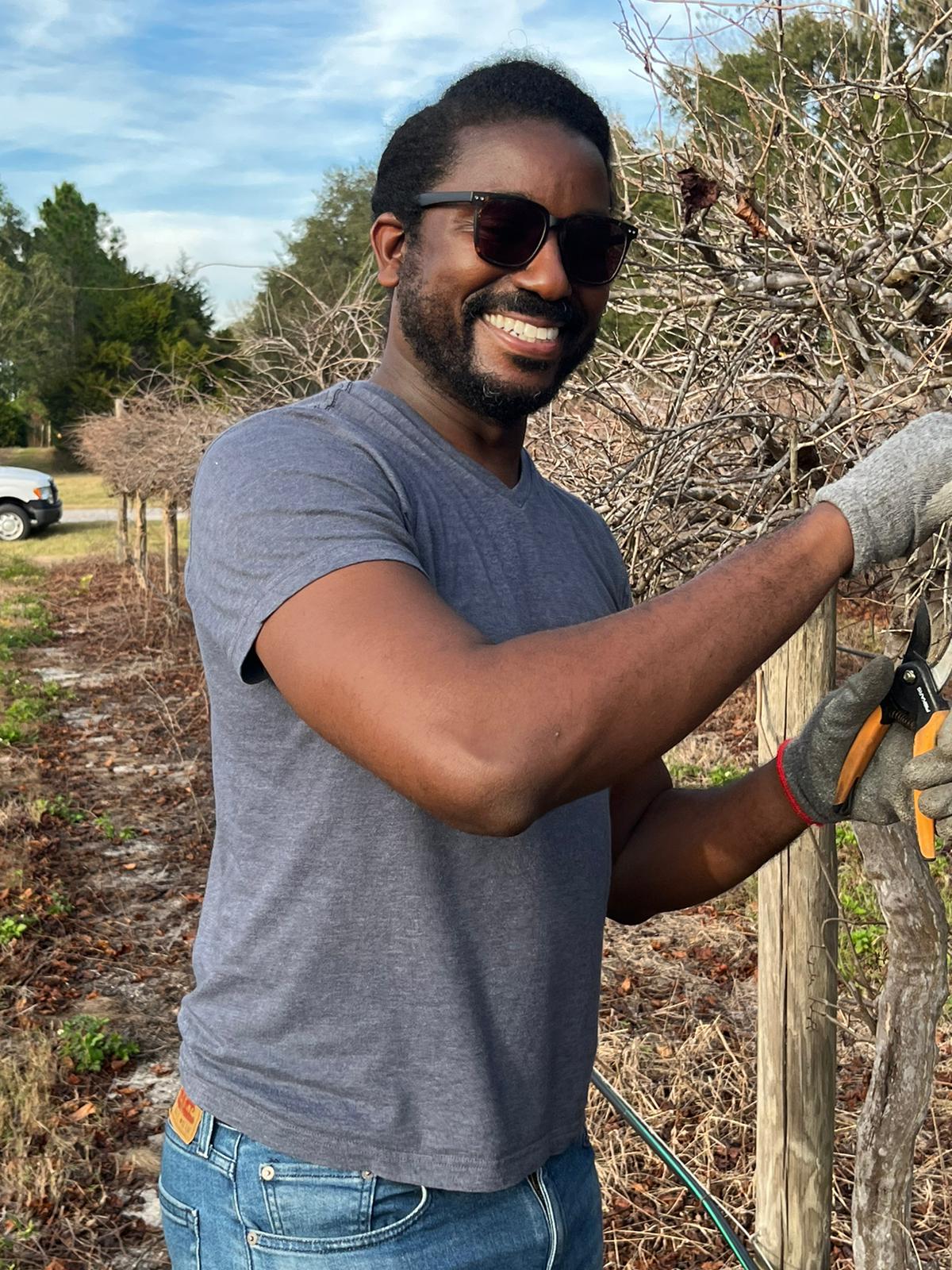
In 2016, James was awarded a USDA Pathways Student Internship to pursue his Master’s in Entomology at the University of Florida. In collaboration with the Chemistry Research Unit at the USDA, he investigated lipid accumulation among European corn borer’s preparing for diapause. After graduating with his Master’s degree in 2019, James continued to work in the Chemistry Research Unit at the USDA where his research shifted to the ecological interactions between small fruits and their insect pests.
In the spring of 2020, James joined Dr. Oscar Liburd’s Small Fruits and Vegetable IPM Laboratory where he will continue to investigate the chemical ecology of insect pests, their fruit hosts, and microbes while also serving as a Graduate Teaching Assistant for the Natural Area Teaching Lab.
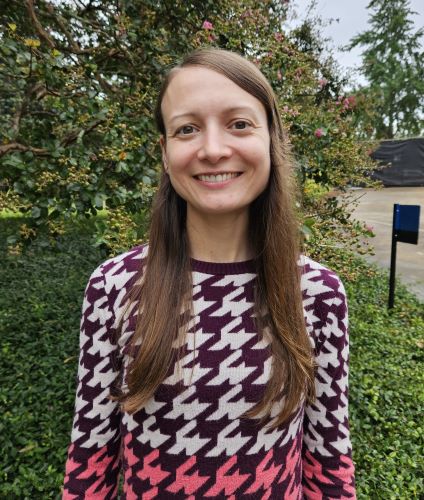 Cera Jones: Cera Jones is a research professional at the University of Georgia with Dr. Ash Sial. She is interested in integrated pest management with an emphasis on biological control.
Cera Jones: Cera Jones is a research professional at the University of Georgia with Dr. Ash Sial. She is interested in integrated pest management with an emphasis on biological control.
Fabrizio Lisi: Fabrizio Lisi is a PhD student at University of Catania (Catania, Italy) working on the sustainable control of plant-insect pests through biological control agents, and the ecotoxicology of insect natural enemies. He received his B.S. and M.S. with honors in Agricultural Sciences at the Department of Agriculture, Food, and Environment at University of Catania, Italy. His PhD project title is "Multifactorial toxicological studies on host-parasitoid interactions: new insights for the integrated control of Drosophila suzukii”. As part of the PhD internship and training abroad, he has spent almost one year at Kearney Agricultural Research and Extension Center (KARE), CA, USA, supported by a Fulbright scholarship. His research activity is coordinated by Dr. Kent M. Daane and Prof. Dr. Antonio Biondi, and it is focused on field and laboratory projects related to the D. suzukii-Ganaspis brasiliensis interaction and the classical biological control project against the spotted wing drosophila.
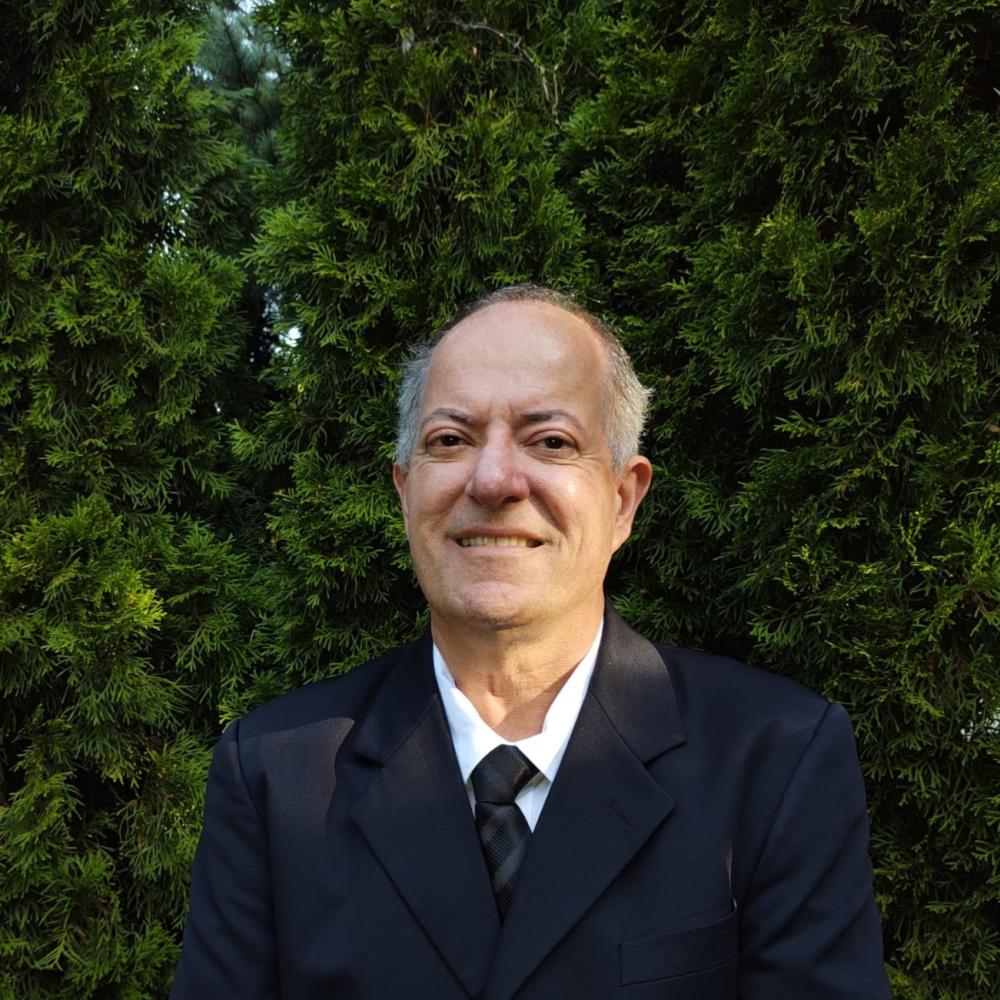 Flávio Garcia: Flávio Roberto Mello Garcia is a visiting professor from Brazil. His research focus is on Integrated Pest Management of Drosophila suzukii with emphasis in biological control.
Flávio Garcia: Flávio Roberto Mello Garcia is a visiting professor from Brazil. His research focus is on Integrated Pest Management of Drosophila suzukii with emphasis in biological control.
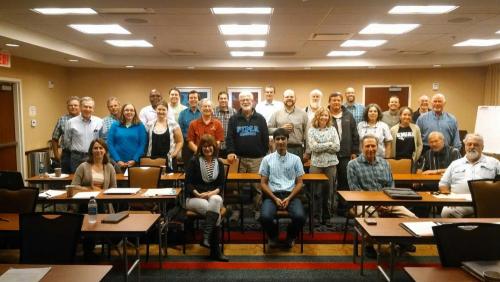
Alumni

Hannah Burrack: Hannah Burrack is an associate professor and extension specialist in the Department of Entomology at North Carolina State University and holds degrees in entomology from the University of California, Davis (PhD) and the University of Wisconsin, Madison (BS). Dr. Burrack heads the Specialty Crop IPM Laboratory, which studies the biology and management of arthropod pests and pollinators in berry and tobacco crops.Dr. Burrack has studied spotted wing drosophila since 2010, when it was first detected in North Carolina by a volunteer monitoring network coordinated by her laboratory, and had served as a national leader to coordinated research, extension, and education activities. Other recent projects include management of SWD in blueberries and caneberries, measuring the effects of strawberry clipper weevil in annual strawberry systems, and assessment of the ability of flowering insectary strips to enhance biological control in organically grown tobacco.
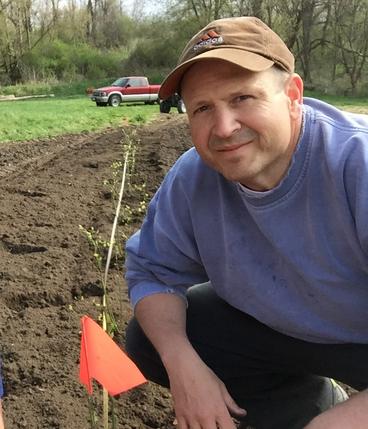 Eric Burkness: Eric Burkness received his M.S. degree in Entomology from the University of Minnesota and is currently a Researcher in Dr. Mary Rogers’ lab in the Department of Horticultural Science at the University of Minnesota working on integrated pest management (IPM) issues related to small fruit and organic crop production. Previously, he was a Researcher in Dr. Bill Hutchison’s lab in the Department of Entomology at the University of Minnesota working on a range of pest management issues related to invasive species in specialty crops.
Eric Burkness: Eric Burkness received his M.S. degree in Entomology from the University of Minnesota and is currently a Researcher in Dr. Mary Rogers’ lab in the Department of Horticultural Science at the University of Minnesota working on integrated pest management (IPM) issues related to small fruit and organic crop production. Previously, he was a Researcher in Dr. Bill Hutchison’s lab in the Department of Entomology at the University of Minnesota working on a range of pest management issues related to invasive species in specialty crops.
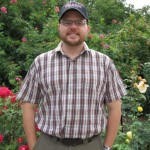 Matt Grieshop: Matt Grieshop joined the MSU department of Entomology in October of 2007 as the Organic Pest Management faculty member. My responsibilities include research (50%), extension (30%), and teaching (20%) in the areas of organic agriculture and pest management. Although I am housed in entomology, I also have a strong interest in the management of weeds and pathogens and have several ongoing projects exploring how plant, insect, and pathogen pests interact with each other or with specific pest management tactics. My appointment is especially broad in that I am not restricted to a specific commodity group (i.e. fruit, field crops, vegetables, animal science, floriculture, etc.). The overall goal of my research and extension efforts are to develop, refine, and deliver pest management technologies that minimize off farm inputs while preserving farm economic sustainability. An additional research interest is the identification, quantification, and optimization of arthropod mediated ecosystem services.
Matt Grieshop: Matt Grieshop joined the MSU department of Entomology in October of 2007 as the Organic Pest Management faculty member. My responsibilities include research (50%), extension (30%), and teaching (20%) in the areas of organic agriculture and pest management. Although I am housed in entomology, I also have a strong interest in the management of weeds and pathogens and have several ongoing projects exploring how plant, insect, and pathogen pests interact with each other or with specific pest management tactics. My appointment is especially broad in that I am not restricted to a specific commodity group (i.e. fruit, field crops, vegetables, animal science, floriculture, etc.). The overall goal of my research and extension efforts are to develop, refine, and deliver pest management technologies that minimize off farm inputs while preserving farm economic sustainability. An additional research interest is the identification, quantification, and optimization of arthropod mediated ecosystem services.
 Christelle Guédot: Christelle Guédot obtained her PhD from Utah State University in Logan, UT, where she worked on the nest location and nest recognition of two solitary bees, i.e. the alfalfa leaf-cutting bee and the blue orchard bee, two commercially important pollinators. In 2005, she started a post-doctoral research position in Yakima, WA, where she worked at the USDA-ARS laboratory on the biology, behavior, and chemical ecology of pest insects of fruit trees and vegetables. In 2012, Christelle became the Fruit Crop Entomologist and Extension Specialist at the University of Wisconsin in Madison.
Christelle Guédot: Christelle Guédot obtained her PhD from Utah State University in Logan, UT, where she worked on the nest location and nest recognition of two solitary bees, i.e. the alfalfa leaf-cutting bee and the blue orchard bee, two commercially important pollinators. In 2005, she started a post-doctoral research position in Yakima, WA, where she worked at the USDA-ARS laboratory on the biology, behavior, and chemical ecology of pest insects of fruit trees and vegetables. In 2012, Christelle became the Fruit Crop Entomologist and Extension Specialist at the University of Wisconsin in Madison.
Her research program focuses on developing and refining effective, economical, and environmentally sound insect pest management (IPM) strategies; and determining the importance of pollinators and developing strategies for conserving and enhancing pollination services for fruit crops in Wisconsin. The focus of her extension program is to provide up to date, research-based information to Wisconsin fruit growers on effective and sustainable IPM practices and on pollination services. As part of this OREI project, Christelle will lead the assessment of currently available lures and baits both individually and in combinations, in different crops and at different times of the season to determine the best bait for trapping SWD as a function of the chemical and visual background produced by different crops throughout the growing season.
 Kelly Hamby: Dr. Kelly Hamby, Extension Specialist and Assistant Professor in the Department of Entomology at the University of Maryland, College Park, received her PhD in Entomology at the University of California Davis with a focus on sustainable Integrated Pest Management strategies for various insect pests. She has previously performed research on monitoring, yeast associations, chronobiology, chronotoxicity of insecticides and the implications of this work to management of spotted wing drosophila (SWD).
Kelly Hamby: Dr. Kelly Hamby, Extension Specialist and Assistant Professor in the Department of Entomology at the University of Maryland, College Park, received her PhD in Entomology at the University of California Davis with a focus on sustainable Integrated Pest Management strategies for various insect pests. She has previously performed research on monitoring, yeast associations, chronobiology, chronotoxicity of insecticides and the implications of this work to management of spotted wing drosophila (SWD).
Currently, the Hamby lab is evaluating the seasonal phenology of SWD in various fruit crops and the efficacy of a commercial trapping system for monitoring SWD at Maryland pick-your-own diversified small farm sites. Additionally, a long-term goal of the Hamby lab is to evaluate how fungal microorganisms, including plant pathogens, impact and are impacted by SWD. Co-leading the cultural control subobjective, Dr. Hamby will help coordinate the research objectives and will evaluate pruning and mulching regimes to manage SWD infestation in organic blueberries and caneberries.
Donn T. Johnson: Donn T. Johnson, Ph.D., is a professor of Entomology at the University of Arkansas since 1978 (appointment: 65% research, 25% extension and 10% teaching). He received a B.S. in biology from the University of Minnesota-Duluth. At Michigan State University, he studied the dispersal of predatory mites in apples as he completed a M.S. and Ph.D. (1978) in Entomology. He teaches Insect Pest Management and Insect Behavior and Chemical Ecology. He develops and implements fruit and nut pest management programs for conventional, organic and high tunnel production systems, develops and demonstrates pest scouting methods and evaluates effectiveness of insecticides, biopesticides.
Recently, he has been evaluating releases of natural enemies in high tunnels and use of insect screen exclusion. Donn maintains a Fruit/Nut Pest Management website at http://comp.uark.edu/~dtjohnso/. Donn received the 2007 SEB-ESA Award for Excellence in Integrated Pest Management and the University of Arkansas John White Grape Team Award. Donn will collaborate in the USDA\NIFA\OREI project on organic management strategies for spotted wing drosophila by helping determine the feasibility of insect netting to exclude SWD and increase crop quality and yield; and assist with outreach via grower meetings and on-farm demonstrations of organic SWD management strategies.
 Tracy Leskey: Dr. Tracy Leskey received her B.S. in Biology, from Wilson College, Chambersburg, PA; her M.S. in Ecology at Penn State University, University Park, PA and her Ph.D. in Entomology at the University of Massachusetts at Amherst. She is employed as a Research Entomologist for USDA-ARS at the Appalachian Fruit Research Station in Kearneysville, WV, USA and is an adjunct faculty member in the Department of Entomology at Virginia Tech. Her research focuses on developing behaviorally-based monitoring and management tools for tree fruit pests to increase both ecological and economic sustainability of orchard production systems. In particular, she has focused her efforts on developing tools to better manage the brown marmorated stink bug (BMSB), native stink bugs, plum curculio, dogwood borer, apple maggot and most recently, spotted wing drosophila. She leads a USDA-NIFA SCRI CAP (www.stopbmsb.org) and co-leads the NE BMSB IPM Working Group.
Tracy Leskey: Dr. Tracy Leskey received her B.S. in Biology, from Wilson College, Chambersburg, PA; her M.S. in Ecology at Penn State University, University Park, PA and her Ph.D. in Entomology at the University of Massachusetts at Amherst. She is employed as a Research Entomologist for USDA-ARS at the Appalachian Fruit Research Station in Kearneysville, WV, USA and is an adjunct faculty member in the Department of Entomology at Virginia Tech. Her research focuses on developing behaviorally-based monitoring and management tools for tree fruit pests to increase both ecological and economic sustainability of orchard production systems. In particular, she has focused her efforts on developing tools to better manage the brown marmorated stink bug (BMSB), native stink bugs, plum curculio, dogwood borer, apple maggot and most recently, spotted wing drosophila. She leads a USDA-NIFA SCRI CAP (www.stopbmsb.org) and co-leads the NE BMSB IPM Working Group.
 Jennie Popp: Jennie Popp. Ph.D. joined University of Arkansas in December 2008 is currently a Professor in the Department of Agricultural Economics and Agribusiness and Area Director for Economics in the Division of Agriculture’s Center for Agricultural and Rural Sustainability.
Jennie Popp: Jennie Popp. Ph.D. joined University of Arkansas in December 2008 is currently a Professor in the Department of Agricultural Economics and Agribusiness and Area Director for Economics in the Division of Agriculture’s Center for Agricultural and Rural Sustainability.
Her research focuses on assessing 1) agricultural practices for resource (primarily soil and water) management, 2) tools to manage production and environmental risks in agriculture and 3) sustainability indicators. She has been lead or co-investigator on over $9 million of externally funded research projects over the past five years. She teaches courses in environmental economics and sustainability.
Using the interactive sustainable production budgets currently being developed by Dr. Popp and her team, she will conduct economic assessments around the best management practices being investigated to control SWD.
 Peter Shearer: Peter W. Shearer, Ph.D., is a Professor of Entomology located at Oregon State University’s Mid-Columbia Agricultural Research and Extension Center in Hood River, OR. His lab develops integrated management programs for tree fruits. Professor Shearer will study management of SWD including testing organic compounds for efficacy and their impacts on natural enemies and secondary pests.
Peter Shearer: Peter W. Shearer, Ph.D., is a Professor of Entomology located at Oregon State University’s Mid-Columbia Agricultural Research and Extension Center in Hood River, OR. His lab develops integrated management programs for tree fruits. Professor Shearer will study management of SWD including testing organic compounds for efficacy and their impacts on natural enemies and secondary pests.
REEU Participants
2024
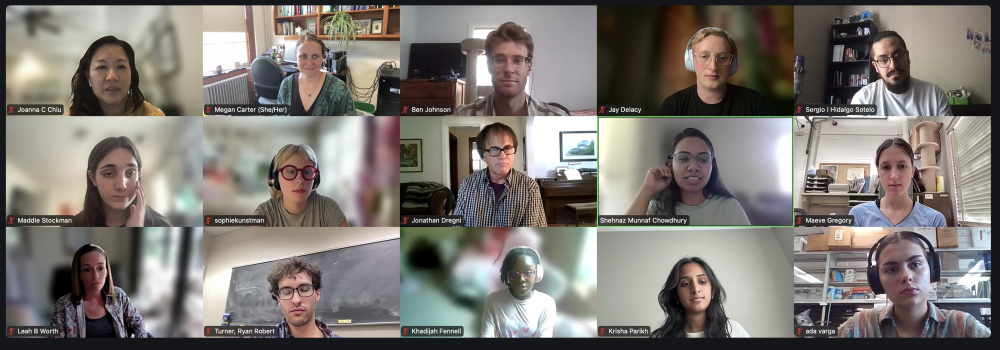
Sophia Kunstman (University of Minnesota): "I was interested in this project because I wanted to gain more experience in independent research while having many mentors to guide me through it for the first time! I haven't done much entomology research before, but agriculture and organic systems have always fascinated me, so this program seemed like a great introduction."
Project Title: Survey of SWD parasitoids in non-crop hosts on organic fruit farms in MN
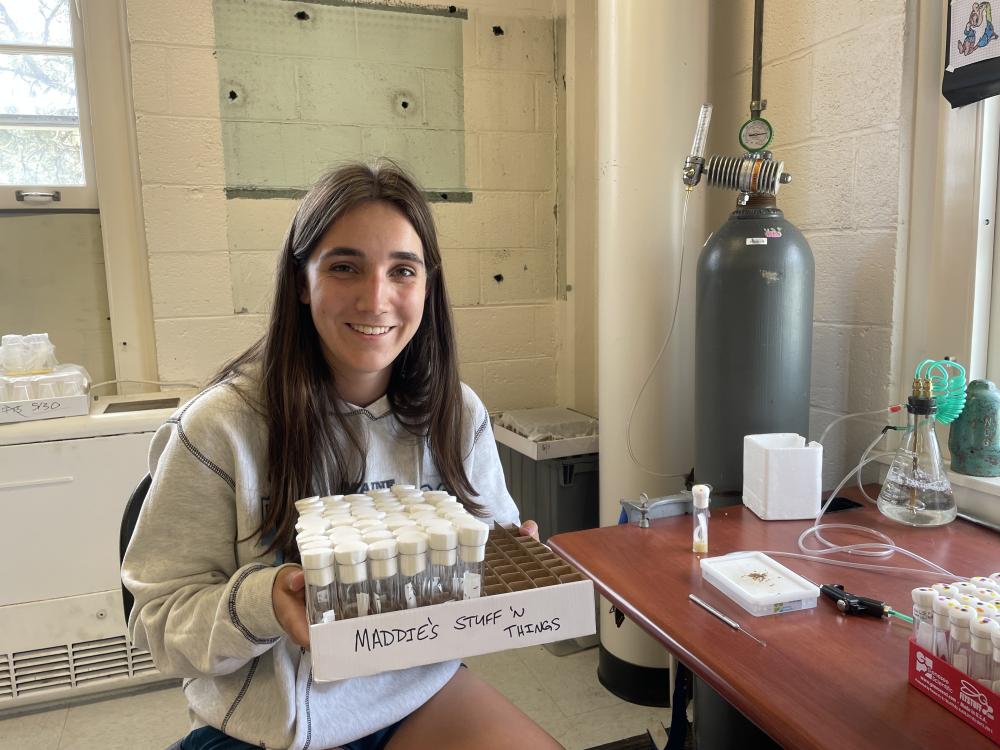 Maddie Stockman (University of Maine): "I was excited about this program because I am interested in entomology, especially biological control. I also was excited to do my own research because I did not have a lot of experience in research."
Maddie Stockman (University of Maine): "I was excited about this program because I am interested in entomology, especially biological control. I also was excited to do my own research because I did not have a lot of experience in research."
Project Title: Optimizing Leptopilina japonica Rearing Methodologies: Parasitoid Density vs. Exposure Length
 Khadijah Fennell (University of Georgia): I was interested in participating in this project to gain experience creating, developing, and conducting my research topic before starting my Master's program. Additionally, I adore parasitoids and wasps; they are genuinely fantastic insects, and I will take every chance I get to work with them!
Khadijah Fennell (University of Georgia): I was interested in participating in this project to gain experience creating, developing, and conducting my research topic before starting my Master's program. Additionally, I adore parasitoids and wasps; they are genuinely fantastic insects, and I will take every chance I get to work with them!
Project Title: Two Choice Assay of Ganaspis kimorum: Variation In Blueberry Infestation Preference
 Ada Varga (Michigan State University): I am interested in the OREI program because I am deeply fascinated with insects, plants, and research. Exploring insects' roles in our ecosystems and investigating their potential to inspire innovative solutions truly inspires me.
Ada Varga (Michigan State University): I am interested in the OREI program because I am deeply fascinated with insects, plants, and research. Exploring insects' roles in our ecosystems and investigating their potential to inspire innovative solutions truly inspires me.
Project Title: Effects of Early-Season Blueberry Insecticides on Leptopilina japonica survival and parasitism
 Krisha Parikh (University of Florida): "This project caught my attention because I found the research in Dr. Liburd's Small Fruit and Vegetable IPM Lab extremely interesting, especially regarding parasitoid work and SWD experimentation. Throughout the project, I have gained skills in laboratory settings while expanding my knowledge in the realms of drosophila research. I have had a fantastic experience as an intern and will take the skills I've learned into my future career endeavors! "
Krisha Parikh (University of Florida): "This project caught my attention because I found the research in Dr. Liburd's Small Fruit and Vegetable IPM Lab extremely interesting, especially regarding parasitoid work and SWD experimentation. Throughout the project, I have gained skills in laboratory settings while expanding my knowledge in the realms of drosophila research. I have had a fantastic experience as an intern and will take the skills I've learned into my future career endeavors! "
Project Title: Effects of Fruit Firmness of Blueberry Cultivars and the Behavior of Ganaspis brasiliensis on D. suzukii Presence
Ryan Turner (Oregon State University): "I was very excited to participate in this program for the second year. I saw it as a great opportunity to continue my research and apply some of the lessons from the previous year. This time around my mentor and I made the research process much more self-guided, which was a great way to build my confidence and competence as a researcher."
Project Title: Larval behavior in the presence of Ganaspis kimorum
Maeve Gregory (USDA):
2023
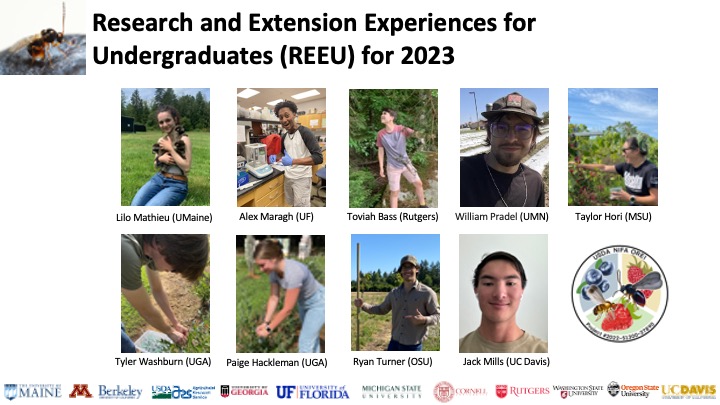
Lilo Mathieu (University of Maine): Early season assessment of SWD parasitoid populations in Maine
Alex Maragh (University of Florida): Rearing and releases of Ganaspis brasiliensis for biological control of SWD
Toviah Bass (Rutgers University): Influence of fruit hosts on Ganaspis brasiliensis performance
William Pradel (University of Minnesota): Host suitability for SWD survival and larval parasitism with Ganaspis brasiliensis
Taylor Hori (Michigan State University): Production and release of wasps for SWD control
Tyler Washburn (University of Georgia): Releases of Ganaspis brasiliensis for biological control and monitoring of dispersal
Paige Hackleman (University of Georgia): Releases of Ganaspis brasiliensis for biological control and monitoring of dispersal
Ryan Turner (Oregon State University): This program has been an amazing opportunity. I even applied this topic to a presentation at the Pacific Branch Meeting of the Entomological Society of America!
Project Title: Influence of G. brasiliensis on D. suzukii egg laying behavior
Jack Mills (UC Davis): Potential for Entomopathogenic Nematode Use in SWD Suppression
Funding

Funding for this website is from the USDA NIFA Organic Research and Extension Initiative (OREI) Program. Grant numbers: 2022-51300-37890, 2018-51300-28434 and 2015-51300-24154.


 Fatemeh Ganjisaffar:
Fatemeh Ganjisaffar: